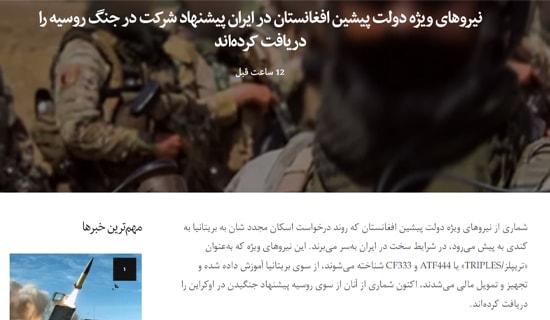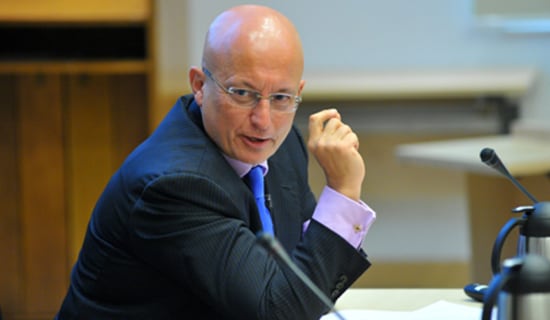In an article in the English-language Saudi daily Arab News titled "A Window Has Opened for Middle East Peace — Let’s Grab the Chance," prominent Emirati businessman and writer Khalaf Ahmad Al-Habtoor states that the Arabs and Israel currently have a vested interest in settling their differences and making peace, in order to join forces in fighting their common enemies: Iran and its allies. He stresses, however, that such cooperation between Israel and the Arabs will be difficult without making progress towards the resolution of the Palestinian-Israeli conflict. To this end, he advises both the Palestinians and Israelis to put aside their grievances and unrealistic expectations, and work together to find a pragmatic and feasible solution to the conflict. Addressing Israeli Prime Minister Netanyahu, he urges him to turn to Saudi Arabia and the Gulf states, in whom he will find true allies for advancing peace with the Palestinians and also for fighting Israel's and the Arab's common enemies.
The following are excerpts from his column:[1]

Khalaf Ahmad Al-Habtoor (Image: Habtoor.com)
"The human race [has been]... successful in resolving the bitterest of conflicts. Who could have imagined that Germany and Japan would become two of the closest US allies, or that the Berlin Wall would fall and free Soviet satellite nations from communism? Humanity always finds a way forward on the path to peace, with one exception — the Israeli-Palestinian conflict, which has dragged on painfully in one form or another since the birth of the Israeli state, condemning millions to misery.
"This untenable situation has resulted in serial wars between Israelis and Arabs, and the failure to reach an accord is not for the want of trying on the part of mediators. In 2000, a Palestinian state was close to being a reality but was thwarted by leadership changes in Israel and the US, where voters delivered hawks.
Any efforts in that direction since then have been nothing more than token. Palestinian hopes have been dimmed and most fear they have been abandoned by the community of nations and by a Palestinian-fatigued media.
"I have been batting for my Palestinian brothers and sisters since I rushed home as a boy to listen to the Egyptian President Gamal Abdel Nasser’s weekly radio addresses. Former Palestinian President Yasser Arafat was a personal friend of mine, and to this day I do what I can to alleviate the financial burdens of Palestinians in dire need. It should go without saying that I would love in my lifetime to see a Palestinian state emerge on 1967 borders, but reality dictates that pragmatism must prevail over what has become a mirage.
"I was once an idealist; no longer. Unrealistic dreams are of no use to a people yearning for a place where they can live peacefully and prosper in dignity. The painful truth is that resistance against a militarized, nuclear state has served only to elicit a brutal backlash, encouraging the occupying power to dig in its heels.
In short, it is time to implement new strategies requiring creative thinking and courage from all sides. A brand new page must be turned; a clean slate where the dredging up of past injustices has no place. Right now is the moment to write a new chapter, Israelis and Arabs together.
"'Israelis and Arabs together' — the very phrase will offend the ears of many entrenched Israeli and Palestinian supporters, but since we are the parties to the conflict, is there any other way? If so, tell me about it. To quote the late Israeli Prime Minister Yitzhak Rabin, whose life was taken because of his peace efforts in partnership with Arafat: 'You don’t make peace with friends. You make it with enemies.'
You may be asking yourself, why now, when there is a pro-Israel president in the White House and Israel has a hardliner prime minister?
"In my opinion, it is now or never. First, US President Donald Trump would be ecstatic if he were the only US leader to secure such a deal. Second, and most important, the implacable enemies of Israel are also the enemies of almost all Gulf states and their Arab allies. Combating those mutual threats rests on cooperation between threatened countries. As they say, the enemy of my enemy is my friend.
"There is one state which, together with its overt and covert allies and proxies, is the greatest supporter of terrorism in the region and further afield: Iran. It operates on medieval values; it craves an Ottoman-style empire and disseminates a poisonous, backward ideology. Its aggression harms the Arab world and is seen in Israel as a threat to its very existence. Close cooperation between Saudi Arabia and Israel on that front would stop Iran’s ambitions in their tracks.
"The late Saudi King Abdullah offered an olive branch in 2002 during an Arab League Summit in Lebanon in the form of the Arab Peace Initiative, a solid proposal based on a two-state solution. Israel left the offer hanging. Perhaps, then, the timing was not right.
"The logical step now is for Israel to recognize the legitimacy of Palestinian aspirations by agreeing to a viable Palestinian state; or, at the very least, working toward a one-state solution with seriousness and dedication. Both the Israeli and the Arab sides should offer security guarantees backed by the US.
Israel’s defense chief Gadi Eisenkot told the online Arabic language journal Elaph this week that Israel was ready to share intelligence with 'moderate' Arab states such as Saudi Arabia to thwart Tehran, which he accused of 'seeking to take control of the Middle East… we must prevent this from happening.'
"I could not agree more, but in the absence of any vision to improve Palestinian lives, cementing ties with Israel would engender conflicting emotions within the minds of Arab leaderships and peoples. Surely relinquishing land mostly populated by Palestinians is a relatively small price to pay for an enduring peace with almost the entire Arab world that would bring mega economic, diplomatic and social rewards to all participating states. The only alternative is one state in which Israelis and Palestinians live side by side, enjoying equal rights.
Lastly, I would remind Israeli Prime Minister Benjamin Netanyahu that the half-open window of opportunity to end decades-old tensions can shut just as fast as it opened. It has been created by a confluence of circumstances whereby Israelis and Arabs must overcome the nefarious schemes of a common enemy.
"Mr. Netanyahu, this is your one chance to make history, not only as an Israeli patriot but as a peacemaker, a man capable of displaying pragmatism for the benefit of your people and ours. Let us put our hatred and fears behind us so that we deliver freedom to generations of Palestinians while beating back those wishing to do us harm.
"As a first step, I advise you to approach the Saudi leadership as well as other Gulf Cooperation Council member states, such as the UAE and Bahrain, with sincere resolve. If you do, I strongly believe you will encounter fertile ground in which the first seeds of peace can be planted. Be brave enough to take a leap. Create a legacy of which you can be proud to safeguard generations of Israelis and Arabs to come."
[1] Arab News (Saudi Arabia), November 23, 2017.





